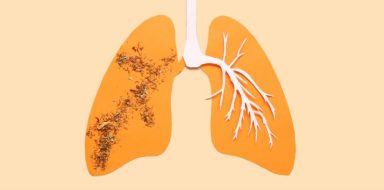What are Blood Clots?
Blood clots are gel-like collections of blood that form in your veins or arteries when blood changes from a liquid to a partially solid state. While clotting is a necessary process to prevent excessive bleeding when injured, blood clots can also form when they aren't needed, leading to serious health problems. We'll explore more about that, heart conditions, foods for blood clots and look into ATTR-CM treatments like Vyndamax, a medication used to treat transthyretin amyloid cardiomyopathy (ATTR-CM).
Foods for Blood Clots
Here are some foods that are beneficial:
- Leafy greens: Rich in vitamin K, which helps regulate blood clotting.
- Fatty fish: Contains omega-3 fatty acids that can reduce clot formation.
- Garlic: Known for its antiplatelet properties, which prevent blood clots.
- Berries: High in antioxidants that help reduce inflammation.
- Nuts and seeds: Provide healthy fats and anti-inflammatory properties.
- Ginger: Acts as a natural blood thinner and reduces clot formation.
- Tomatoes: Contain lycopene, which improves cardiovascular health.
- Turmeric: Has anti-inflammatory and anticoagulant properties.
- Green tea: Rich in antioxidants that can improve blood flow.
- Dark chocolate: Contains flavonoids that help lower blood pressure and improve circulation.
Certain foods can help prevent blood clots by improving circulation, reducing inflammation and promoting heart health.
What are Heart Conditions?
Heart conditions, also known as cardiovascular diseases, encompass a range of disorders that affect the heart and blood vessels. The most common heart conditions include coronary artery disease (CAD), heart attacks, heart failure and arrhythmias. These conditions can be caused by atherosclerosis (a buildup of fatty deposits in the arteries), hypertension (high blood pressure) and other factors that strain or damage the heart and blood vessels.
Understanding ATTR-CM
ATTR-CM, or transthyretin amyloid cardiomyopathy, is a rare but serious condition caused by the buildup of amyloid proteins in the heart. This leads to stiffening of the heart muscle, making it difficult for the heart to pump blood effectively. ATTR-CM can be hereditary or acquired (wild-type) and is often underdiagnosed due to its similarity to other heart conditions.
Treatment Options for ATTR-CM
Medications
- Tafamidis: Specifically approved for treating ATTR-CM, this medication helps stabilize the transthyretin protein and slow disease progression.
- Diflunisal: An anti-inflammatory drug that can help stabilize transthyretin protein.
- Patisiran and Inotersen: RNA interference therapies that reduce the production of transthyretin protein.
- Vyndamax: Vyndamax is a medication used to treat transthyretin amyloid cardiomyopathy (ATTR-CM), a condition where abnormal protein deposits build up in the heart. It works by stabilizing the transthyretin protein to prevent further amyloid deposits and slow disease progression.
Supportive Treatments
- Diuretics: Help reduce fluid buildup and relieve symptoms.
- Beta-blockers and ACE inhibitors: Manage heart failure symptoms and improve heart function.
Lifestyle Changes
- Diet and exercise: Maintaining a heart-healthy diet and engaging in regular, moderate exercise can help manage symptoms and improve overall health.
- Regular monitoring: Frequent check-ups with a cardiologist to monitor disease progression and adjust treatments as needed.
Advanced Treatments
- Heart transplant: In severe cases where other treatments are ineffective, a heart transplant may be considered.
Heart Health 101
Understanding blood clots and heart conditions, and their impact on health, is crucial for prevention and management. Incorporating specific foods into your diet can help reduce the risk of blood clots, while being aware of rare conditions like ATTR-CM and their treatment options can lead to better outcomes. By staying informed and proactive in managing heart health, individuals can significantly reduce their risk of serious cardiovascular events and improve their quality of life.






